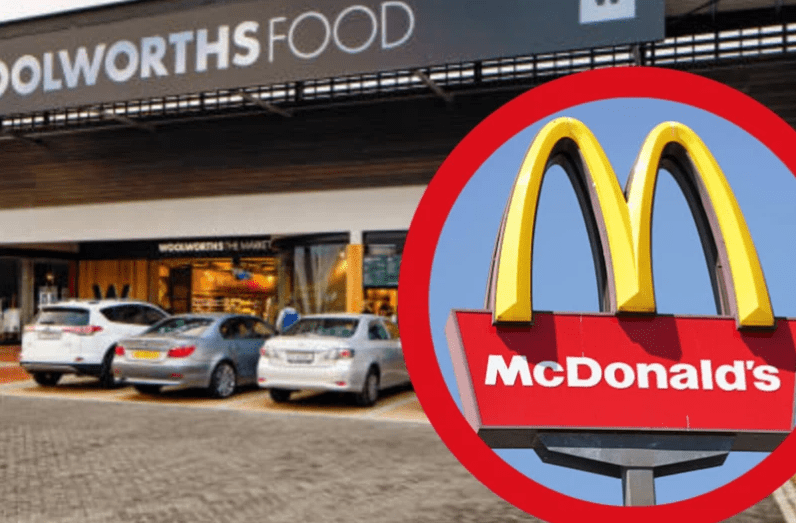
Woolworths and McDonald’s in SA face calls to halt Israeli product sales
South African retailers Woolworths and McDonald’s face pressure from the EFF, led by Julius Malema, to cease selling Israeli products.

In a recent development, South African retailers Woolworths and McDonald’s have come under scrutiny and pressure from the Economic Freedom Fighters (EFF), led by Julius Malema. The EFF has called for these companies to stop selling products obtained from Israel.
This move has sparked a growing controversy and a public debate in South Africa.
ALSO READ: ‘It’s Ox Nché not Thabo’: Springboks fans slam Woolworths on one-year cake offer
Julius Malema, the leader of the EFF, took a firm stance, urging Woolworths to remove all Israeli products from its shelves by the end of the month.
Malema emphasized the responsibility he believes the retailer holds in this regard.
ALSO READ: ‘English for breakfast’: Woolworths shades Springboks opponents
WHAT DID MALEMA SAY?
“Woolworths has a responsibility by the end of this month to remove every product on their shelves that comes from Israel. If they don’t, we will remove it ourselves,” said Malema.
MALEMA: Comrades, Woolworths has got a responsibility by end of this month to remove every product on their shelves that comes from Israel #EFFStandsWithPalestine
— Economic Freedom Fighters (@EFFSouthAfrica) October 23, 2023
Furthermore, Malema accused McDonald’s of providing food to the Israeli military during the ongoing conflicts in the Middle East and called on McDonald’s South Africa to distance itself from these actions.
ALSO READ: DA concerned as e-tolls final decision is SHIFTED
He demanded that the fast-food giant issue a statement regarding its involvement by the end of the month.
The calls for these retail giants to discontinue their association with Israel have sparked a debate around the ethics of corporate supply chains and international politics.
ALSO READ: Woolworths offers Springbok STAR a year’s supply of cake
WOOLWORTHS AND MCDONALD’S HAVEN’T RESPONDED
This situation highlights the increasing intersection between global conflicts and consumer choices. As well as the role of prominent South African companies in these complex issues.
It remains to be seen how Woolworths and McDonald’s will respond to these demands and the broader implications of these controversies on the business landscape in South Africa.
